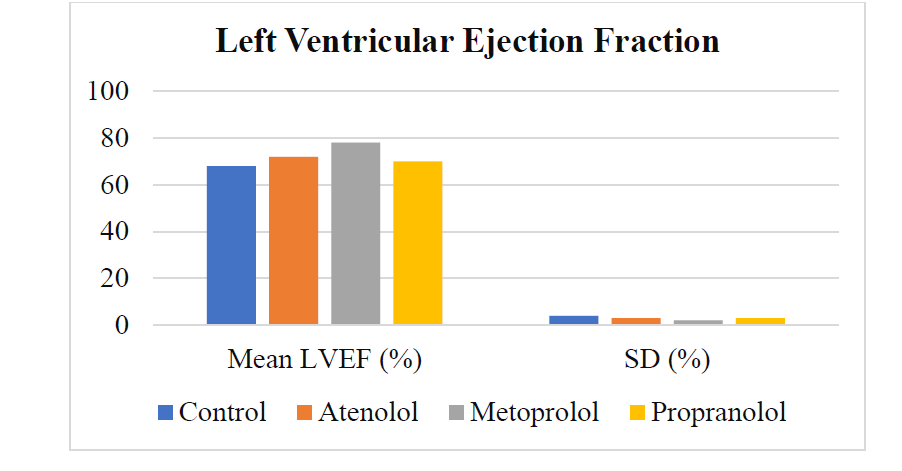Comparative Study of Beta-Blockers On Cardiac Function
DOI:
https://doi.org/10.64062/JPGMB.Vol1.Issue5.6Keywords:
Beta-blockers, Atenolol, Metoprolol, Propranolol, Cardiac function, Heart rate, Systolic blood pressure, Wistar rats, Cardiovascular pharmacologyAbstract
The use of beta-blockers in the management of cardiovascular diseases is widespread; however, the effects of these drugs on individual cardiac functions differ with regard to their pharmacological characteristics. The present study sought to comparatively determine the effects of three of the frequently used beta-blockers, Atenol, Metoprolol, and Propranol on cardiac functionality in adult Wistar rats. A total of forty male rats were assigned randomly in four groups with a control group and were fed with the corresponding beta-blocker as an oral dose over a period of four weeks. They measured cardiac parameters such as heart rate, the left ventricular ejection fraction (LVEF), fractional shortening and systolic blood pressure at the baseline and the end of treatment. Findings indicated that beta-blockers all had significant effects on the heart rate with Propranol having the most effect. Metoprolol was the most significant in terms of increasing left ventricular performance and cardiac contractility and Atenolol was moderate and Propranolol was not significant in terms of LVEF and fractional shortening. Every drug had a significant effect in reducing systolic blood pressure with Propranol recording the greatest decrease. These results indicate the differences on the effects of beta-blockers on cardiac performance which support the personalized application of Metoprolol to improve myocardial contractility and Propranol to regulate the heart rate and blood pressure.




